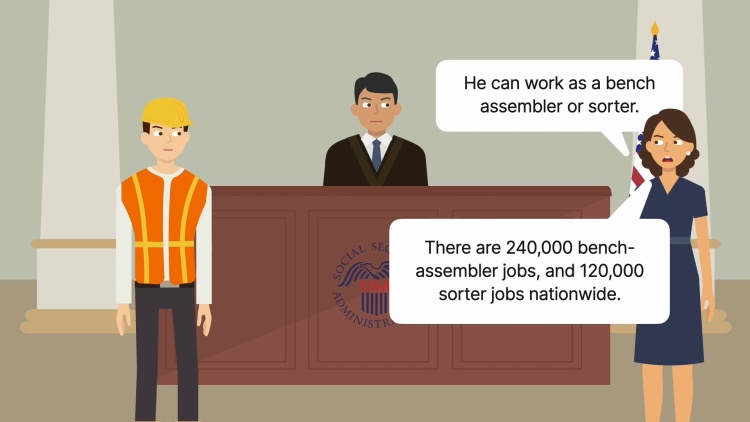Biestek v. Berryhill
United States Supreme Court
139 S. Ct. 1148 (2019)
- Written by Rose VanHofwegen, JD
Facts
Former construction worker Michael Biestek (plaintiff) applied for social security disability benefits, claiming eligibility as of 2009. The Social Security Administration held a hearing before an administrative law judge (ALJ). A vocational expert testified that there were 120,000 sorter and 240,000 bench assembler jobs nationwide that were unskilled, sedentary jobs Biestek could have performed. The expert said she obtained those numbers from the Bureau of Labor Statistics and her own private surveys. Biestek’s attorney asked the expert to produce her data, but the expert refused, citing privacy concerns. Biestek’s attorney suggested the expert redact employee names and produce the data, but the ALJ intervened and said the expert would not need to produce redacted data. The ALJ concluded that Biestek could have worked from 2009 until 2013, when he turned 50 and would have had a harder time finding a job. Biestek appealed, arguing that at least one other circuit had adopted a categorical rule that expert testimony without any supporting data never suffices as substantial evidence of other available jobs. The Sixth Circuit disagreed, noting other circuits had rejected a categorical rule. The Supreme Court granted review to resolve the split among the circuits.
Rule of Law
Issue
Holding and Reasoning (Kagan, J.)
Dissent (Sotomayor, J.)
Dissent (Gorsuch, J.)
What to do next…
Here's why 907,000 law students have relied on our case briefs:
- Written by law professors and practitioners, not other law students. 47,100 briefs, keyed to 996 casebooks. Top-notch customer support.
- The right amount of information, includes the facts, issues, rule of law, holding and reasoning, and any concurrences and dissents.
- Access in your classes, works on your mobile and tablet. Massive library of related video lessons and high quality multiple-choice questions.
- Easy to use, uniform format for every case brief. Written in plain English, not in legalese. Our briefs summarize and simplify; they don’t just repeat the court’s language.





